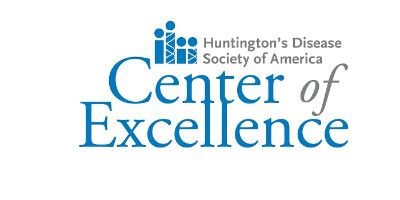

Our Movement Disorders Clinic is recognized by the Huntington's Disease Society of America (HDSA) as one of 55 HDSA Centers of Excellence in the United States, and the only Center of Excellence in North Carolina. These Centers provide a interdisciplinary team approach to Huntington’s disease care along with a commitment to high-quality, comprehensive care, and access to clinical research. Patients benefit from expert neurologists, psychiatrists, social workers, therapists, pharmacists, chaplains, and other professionals who have extensive experience working with families affected by HD. Our center provides care for anyone whose life is impacted by any stage of HD, including those who are at-risk. Our center offers genetic testing, as requested.
What is Huntington's Disease?
For example, uncontrolled movements in the person's fingers, feet, face, or torso. These movements are signs of chorea. They can get more intense when the person is nervous or distracted; as HD progresses, the person's movements can become more extreme and obvious.
Symptoms of HD typically appear in middle-aged people (adult HD). They can also appear in children (juvenile HD), but this is rare. The disease gets worse over time.
Early signs of HD can vary, but often include mild clumsiness or problems with balance or movement, cognitive or psychiatric symptoms (problems with thinking or emotion), and changes in behavior.
For some people, chorea can make it harder to walk, which increases the chances of falling. Some people with HD do not develop chorea; instead, they may become rigid (stiff) and move very little or not at all. This condition is called akinesia. Other people may start out with chorea but become rigid as the disease progresses.
In addition to chorea, some individuals have unusual fixed (unchanging) postures, which is known as dystonia. The two movement disorders (akinesia and dystonia) can blend or alternate.
Other symptoms may include tremor (unintentional back-and-forth movement in the person's muscles) and unusual eye movements. The eye movements can happen early in the disease.
Physical changes may include slurred speech and problems with swallowing, eating, speaking, and especially walking. People with HD may lose weight because of problems with feeding, swallowing, choking, and chest infections. Other symptoms may include insomnia (having trouble sleeping), loss of energy, fatigue, and seizures. Eventually the person will need to stay in bed or in a wheelchair.
Changes in thinking (cognitive changes) may include problems with attention or judgment and having difficulty solving problems or making decisions.
Other changes may include trouble with driving, prioritizing (deciding which things are more important to do and which are less important), and difficulty organizing, learning new things, remembering a fact, putting thoughts into words, or answering a question.
These cognitive changes get worse as the disease progresses, until people with HD are not able to work, drive, or care for themselves.
When the cognitive problems are severe enough that the person cannot function in daily life, the condition is described as dementia. But many people with HD stay aware of their environment and can express their emotions.
Changes in behavior may include mood swings; feeling irritable (cranky); not being active; or feeling apathetic (uninterested), depressed, or angry. These symptoms may decrease as the disease progresses. But in some people, the symptoms can continue and may include angry outbursts, thoughts of suicide, deep depression, and psychosis (losing touch with reality). People with HD may withdrawal from social activities.
Treatment for Huntington's Disease
There is no treatment that can stop or reverse HD, but some of the symptoms can be treated:
- The drugs tetrabenazine and deuterabenazine can treat chorea associated with HD
- Antipsychotic drugs may ease chorea and help to control hallucinations, delusions, and violent outbursts
- Drugs may be prescribed to treat depression and anxiety
Side effects of drugs used to treat the symptoms of HD may include fatigue, sedation, decreased concentration, restlessness, or hyperexcitability. These drugs should be only used when HD symptoms create problems for the person living with HD.
Source: National Institute of Neurological Diseases and Stroke (last checked November 2023